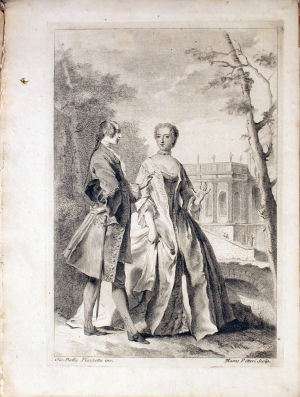Items filtered by date: August 2021
Voltaire from Cirey, 20 June 1738
Those who claim that poetry, like love, is the province of youth, are quite right. And one can prolong one’s youth a little too far … Mind, I don’t maintain that no one should write verse after the age of thirty: on the contrary, that’s normally the only age at which one’s poetry is any good. Racine was around thirty when he wrote Andromaque, Corneille wrote The Cid at thirty-five, Virgil began the Aeneid at forty. I began the Henriade at twenty; I’d have done better to wait until I was thirty-five. But if I were to write an epic poem at sixty, I can tell you it would be pitiful. You can be pope or emperor in extreme old age but you can’t be a poet …
Therefore, having reached forty-three, I’m giving up poetry. Life is too short, and the spirit of man is endowed with too much thirst for serious inquiry to waste time searching for assonance and rhyme. Virgil and La Fontaine both lamented that they knew no physics:
When will the nine sisters, far from royal courts and towns,
Take me thoroughly in hand, and teach me how the skies
Revolve in diverse movements unfamiliar to our eyes—
The names and properties of all those wandering lights?
What Virgil and La Fontaine mourned, I now make my study. I divide my time between learning about nature and studying history. Twenty-five years are quite long enough to devote to poetry; and to all those who’ve dedicated their springtime to that difficult and delightful art, I recommend that they consecrate the autumn and the winter of their lives to simpler things, which are no less seductive, and which it’s shameful not to know.
Emilie to Algarotti, January 1738
This is exciting: I've brought Voltaire and Émilie's correspondence to 1738, the year when our opera is set! Here Émilie is writing to physicist and poet Francesco Algarotti: the frontispiece of his book Newtonianism for Ladies shows them together.
You’re no doubt aware that Monsieur de Maupertuis is back: the accuracy and the beauty of his calculations surpass everything that he himself could have hoped for … The reward for so much accuracy and endeavour is persecution. The old Academy has risen up against him and Monsieur de Cassini and the Jesuits—who as you know reckoned the earth to be flatter in China—are united: they have persuaded the idiots around them that Monsieur de Maupertuis has no idea what he’s talking about, and half or perhaps three-quarters of Paris believe them.
He’s had to struggle against a thousand difficulties to get his account of the voyage and his calculations printed and I’m not sure that he’ll manage it. The payments for his royal commission [to travel beyond the Arctic circle and measure an arc of meridian to prove that the Earth is flatter at the poles] are so paltry that Monsieur de Maupertuis has refused to accept his and has shared it amongst his companions. In short, no one in France wants Monsieur Newton to be proved right.
Nonetheless, by his calculations, Monsieur de Maupertuis has positively concluded and geometrically proven that the Earth is as flat as its inhabitants.
I'm also able to let you hear Julie Lea Goodwin perform an aria from the opera at the Qudos Bank Arena in June: here


